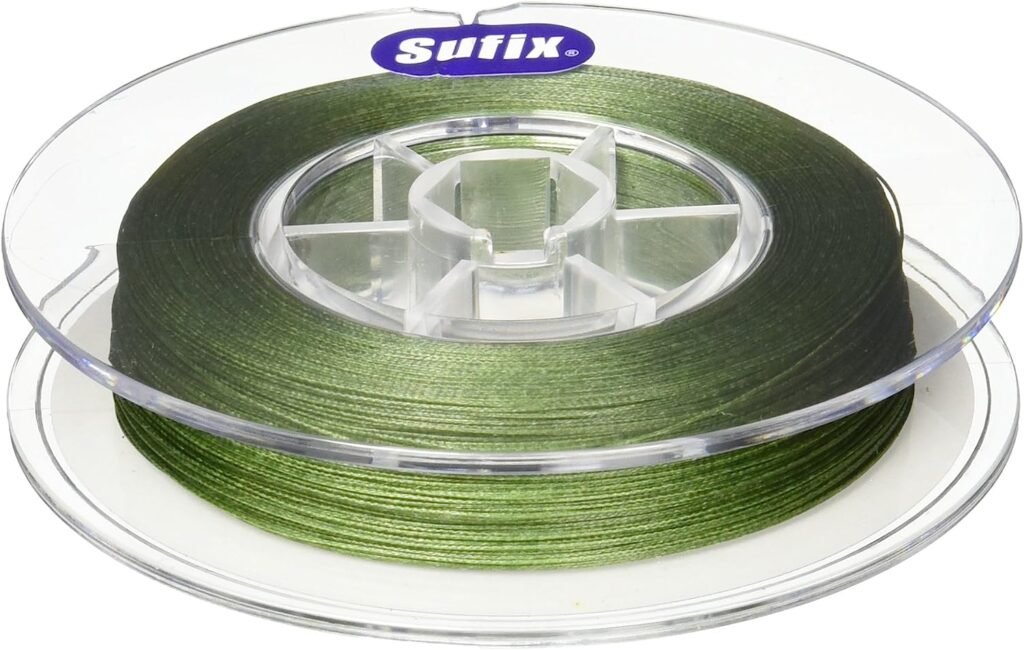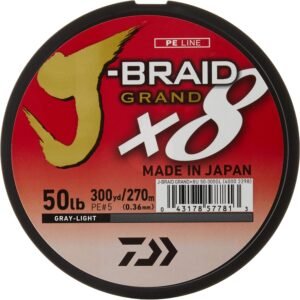The Best Braided Fishing Line – Reel in Success 2024
Fishing lines are more than just equipment; they’re vital links between anglers and their aquatic targets. The right line can make or break your catch. In this blog, we will discover the best braided fishing line.
The Evolution of Fishing Lines
Fishing lines have evolved over centuries, from silk and horsehair to today’s diverse options. These lines connect your rod and reel to the fish, aiding in casting, providing strength during retrieval, and signaling bites and movement.
Braided Fishing Lines: A Cut Above
Braided lines, made by intertwining several high-performance fibers like Spectra or Dyneema, offer unique benefits. They’re incredibly strong, yet thin, allowing for higher pound tests without bulk. This strength and thinness provide superior sensitivity, crucial for detecting subtle bites, and enhance casting distance and accuracy.
Understanding Braided Lines
Modern braided lines, crafted from synthetic fibers like Spectra or Dyneema, excel in strength and abrasion resistance. The number of strands used affects performance, with more strands offering smoother texture and greater strength, but potentially increasing thickness.
Choosing the Right Braided Line
When selecting a braided line, consider the breaking strength, abrasion resistance, and the relationship between diameter and sensitivity:
- Breaking Strength: Match the pound test to your target fish and conditions. Heavier lines suit larger fish and tougher environments.
- Abrasion Resistance: Essential for fishing in rough conditions or near structures.
- Diameter and Sensitivity: Thinner lines transmit bites better but balance thinness with strength and durability.
The Best Braided Fishing Line
- Pros: Incredibly strong and thin diameter for smooth casting, high abrasion resistance, good color choices, no-stretch for sensitivity.
- Cons: Can be more expensive than some options, not the best choice for heavy-duty applications.
- Pros: Excellent abrasion resistance for tough terrains like rocks and oysters, good casting distance, wide range of test weights available.
- Cons: Can be slightly thicker than some other braids, not as sensitive as some options.
- Pros: Very affordable, good casting distance and accuracy, smooth and quiet performance, multiple color options for different water conditions.
- Cons: Not as abrasion-resistant as some other braids, not the strongest option for heavy fish.
- Pros: Superior abrasion resistance thanks to Izanas material, round and smooth for casting, good knot strength, multiple weave options for different needs.
- Cons: Can be more expensive than some other braids, not as widely available as some options.
- Pros: Excellent value for price, good abrasion resistance and strength, thin diameter for casting, multiple colors available.
- Cons: Not the smoothest casting braid, can be slightly noisy, limited availability of heavier test weights.
Ultimately, the best braided fishing line for you depends on factors like your target fish, fishing environment, and budget. Consider your priorities and research the specific lines mentioned above to find the perfect match for your needs.
Conclusion
Selecting the ideal braided fishing line involves balancing strength, sensitivity, and durability. By considering your target species and fishing environment, you can choose a line that enhances your fishing experience, making every catch more rewarding.










